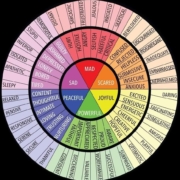Does your routine get to you these days? Does the sameness of the days get to you? Do you wake up some of these pandemic mornings and wonder what is all for? Do you think “Where is the meaning in this? All I do is eat, poop, sleep, and perhaps reproduce?” The joke is when you google that, you’ll get lots of newborn childcare advice.
Here’s what micro self-care is not: Work out 4-5 times a week. Get a massage. Book a spa day. Take more vacations. Meditate. Garden. Take up a new hobby: paint, draw, crochet. Get out into nature. Get more sleep. Practice gratitude. Arrrrrggggghhhh! Yes, all of these are effective self-care ideas, but what can you do RIGHT NOW that does not take up big blocks of time, money, and that don’t require a substantial commitment from you? And that also help you to get through a stressful day at the office? Micro self-care, that’s what. So here’s a short post for some quick ideas.
Worry as a way to problem solve feels useful. Big hint: It isn’t. How to stop worrying becomes more doable when you think of it as spam. The worry thoughts pop instantly into your inbox, aka brain, with catchy titles and tantalizing “solutions.” Of course you supply those solutions, which allows a new email to pop up! Yay! Another problem to “solve” and you’re off to the races. It actually could be conceived as looking like a zig zag pattern in your mind. You go up with a problem, down with a “solution” so it feels like you are accomplishing something with the “action” of worry. And that zig zag can be infinite.
Is it narcissism or confabulation? It can be a difficult to tell these two apart as distinguishing sarcasm and “humorously delivered” criticism. Is a person deliberately lying when they confabulate? Here’s a quick definition of confabulate.
In the formal version, confabulate means to talk, with roots found in the words ‘fable’ and ‘fabulous.’ In the world of psychiatry, it means to fabricate imaginary experiences as compensation for loss of memory. This is common in alcohol induced dementias aka Korsakoff syndrome (a type of dementia often associated with alcohol abuse), but it also has been observed in cases of Alzheimer’s disease and frontotemporal dementia.
I thought that today would be a good one to round up a few simple facts about feelings, so here goes. This image is a feelings wheel that can expand your emotional vocabulary. The purpose of feelings and emotions is to get you to act. However, sometimes we don’t choose the best course of action.
Word. This is the number one anxiety related sleep issue I hear about: “I wake up and can’t get back to sleep.” That is closely followed by: “I can’t get my monkey mind to stop at night when I am trying to get to sleep.” I am going to help you with both issues. It’s up to you to actually implement the help. Horses, water, drink…well you know the drill.
First we are going to get the blah, blah, blah, sleep hygiene talk out of the way. You have heard it all before, BECAUSE IT’S IMPORTANT, duh. If you can’t get these principles under wraps, you may as well stop here, even if I am going to give you some mostly secret knowledge later on.
What better time than the start of a new year to make change that can positively affect the rest of your life? Let’s assume you have made that brave decision, and talk therapy is part of your plan. What do you expect when you are expecting talk therapy? If you want to know how I do it, read on.
People that have never experienced talk therapy often feel a tad apprehensive about getting started. There are lots of reasons. Some wonder if it will do any good at all, and others have the odd fear they won’t be able to ‘do it right.’ Some people simply don’t know how it proceeds or what is expected of them, and they are anxious about that. Still others believe they will receive all the instructions from the therapist about how to change and be on their way—with no real understanding of the courage, persistence, and work that real change takes. And some believe a pill is the answer.
I am waiting to return safely to my home in Wilmington, North Carolina. We are currently cut off by flood waters. My husband and I evacuated from Hurricane Florence and the destruction it left behind. While I wait, I am reading the book Grit (2016) by Angela Duckworth. She is a psychologist and researcher at University of Pennsylvania who studies achievement, and has a TED Talk you may wish to hear on the subject of grit. It’s been on my list for a while, and this seemed like a fairly pointed time to dive in.
Grit sounds self explanatory, but if you think you have it, you may be engaging in oversimplification. I expect many who find themselves cleaning up and rebuilding in the aftermath of the horrific destruction by Florence are going to experience either its lack, or its presence, in their lives.
It’s pretty standard knowledge that you go to therapy to change something. But changing a way of thinking or a behavior we don’t like is just not that easy, is it? And it is especially difficult to change our reactions to other’s mayhem. If it was we’d all do it and be on our merry way. Let me share three signs you need therapy.
I can’t stand feeling this way! My heart is racing. My stomach is churning. I’m sweating like a racehorse. I can’t stop! What if it never stops? Your thoughts are meanwhile trying to keep up with your racing heart at 160 beats a minute and you are well on your way to a panic attack.
This is what is happening in the more extreme moments of panic. And the first thing you must learn to do is neutralize these BIG feelings, and deflate the strength of those thoughts. It is the first step in quieting the limbic system, your central nervous system, so that you can stop a panic attack before it becomes full blown.
PAGE RUTLEDGE, LCSW, CHt | Couples Counseling
Tel: 910-777-7243
Offices at:
5006 Randall Parkway (close to UNCW)
Wilmington, NC 28403
Free parking at office









